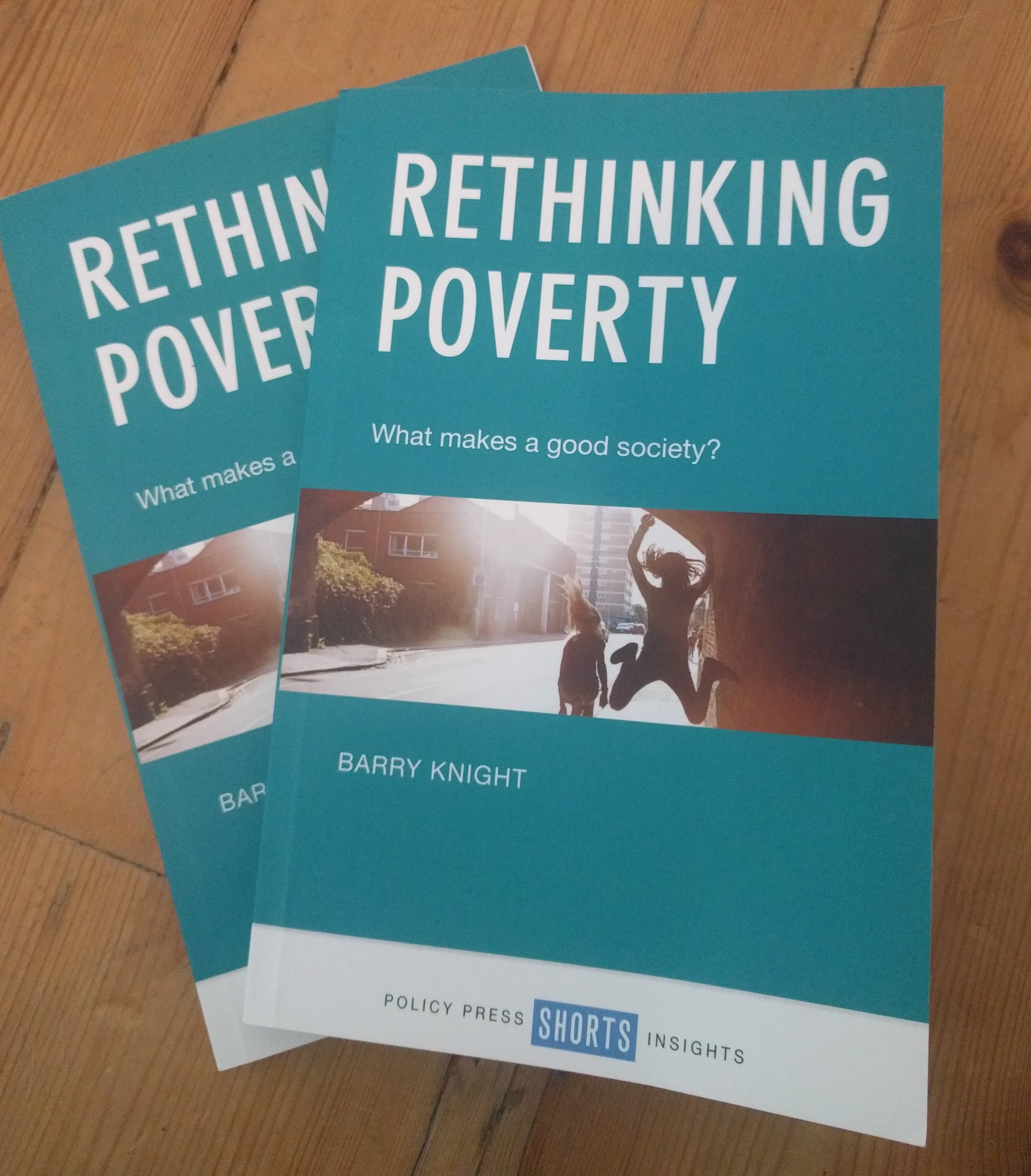Policy Press Blog: What’s next for poverty?
Posted on 31 Aug 2017 Categories: Blog, From Rethinking Poverty
by Barry Knight
In a blog for Policy Press, Barry Knight, Webb Memorial Trust Director asks:
What’s next for poverty?
Progress on poverty has stalled. The proportion of people living in poverty in the UK has remained the same since 2005. This applies both to absolute and to relative poverty.
Poverty campaigners know that they need a new language if they are to make progress. Justin Watson from Oxfam has suggested that charities are getting it wrong:
“There is growing consensus that the narratives used by the third sector, however well-meaning and “right”, have been rejected. Take “poverty” for example, a term that is politically divisive, laced with stigma and highly contested to the point of still having to persuade people it exists at all in the UK.”

Reports on poverty may raise awareness but, as Olivia Bailey, Research Director of the Fabian Society points out, ‘talking about a problem doesn’t generate enthusiasm for a solution’. Leading journalist Simon Jenkins has recently written that endless research into Britain’s growing gap between rich and poor is a waste of time. We need to set aside partisan politics and act.
Yet, solutions are hard to come by. The traditional remedies of the postwar settlement – work and welfare – are no longer sufficient. Social security payments leave many people struggling to make ends meet, while economic development produces low paid jobs.
So, how do we end poverty when the traditional means of doing so no longer work? Technocratic policy fixes treat symptoms, rather than address the complex processes that produce poverty in the first place. Moreover, such an approach wastes effort in repairing an old system that seems incapable of eradicating poverty. We can no longer rely on public and private sectors to guarantee people’s wellbeing and there is little sign that anything in present arrangements will make our society better.
We need to reframe our approach. Rather than addressing what we don’t want – poverty – we need to develop what we do want – a society without poverty. This approach redesigns our society so that poverty becomes obsolete.
To do this, we need to draw on a sociological tradition originally deriving from the work of C. Wright Mills, and modernised by John Paul Lederach, in which we use our moral imagination to develop the society we want. Research by the Webb Memorial Trust shows that the society people want differs markedly from the society we have. Rather than opting for a society based on current political categories, they want a society where social factors come first, where relationships are given priority, and the economy supports people in their lives, rather than the persistent drive for ‘growth’.
The model of how we develop a good society need to change. This can no longer come from the elites as something done to us. Rather, it involves us doing it for ourselves. ‘You can’t go around building a better world for people. Only people can build a better world for people. Otherwise it’s just a cage’, wrote Terry Pratchett in Witches Abroad. Nowhere is this truer than the ending of poverty, a process that now can and must involve the poor being their own agents of change.
The way forward lies, not in a set of transactional policies that shift resources, but rather in the development of transformational relationships that shift power. Young people understand this and that is why working with them to help them take power must be the first goal of social policy.
Barry Knight, Director, Webb Memorial Trust
Read more from the Rethinking Poverty discussion forum:
- Starting a conversation – Associate Editor of Alliance magazine, Andrew Milner, on the launch of Rethinking Poverty
- From paternalistic elites to participatory networks – Compass Director, Neal Lawson on Rethinking Poverty
- Imagining a new future – former Joseph Rowntree Charitable Trust Secretary, Stephen Pittam on Rethinking Poverty
BUY Rethinking Poverty from Policy Press for £7.99
DOWNLOAD Rethinking Poverty from OpenAccess
WATCH our Rethinking Poverty animation on YouTube
READ an executive summary of Rethinking Poverty
FOLLOW commentary and discussion on Rethinking Poverty and the #goodsociety
Posted on 31 Aug 2017 Categories: Blog, From Rethinking Poverty
